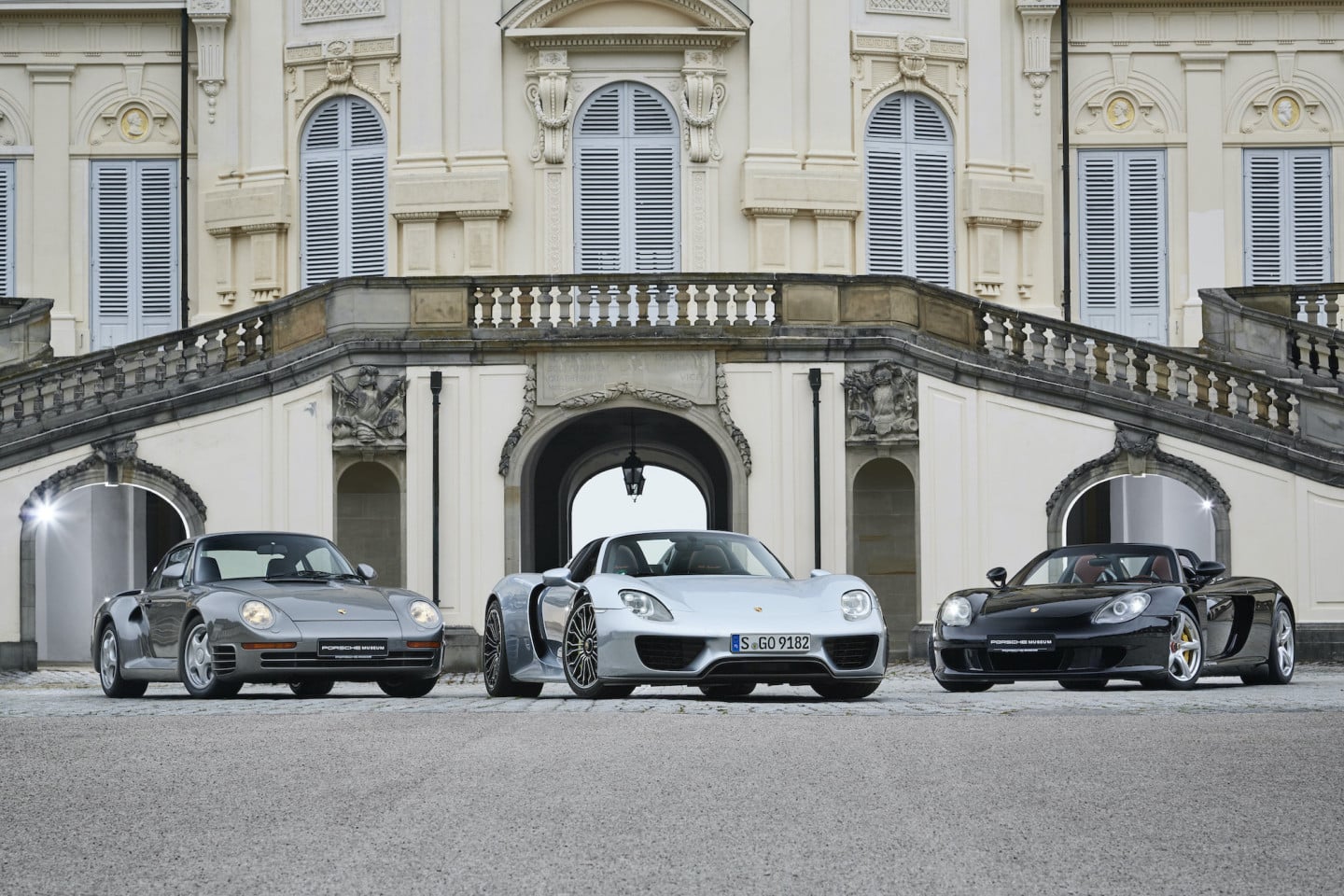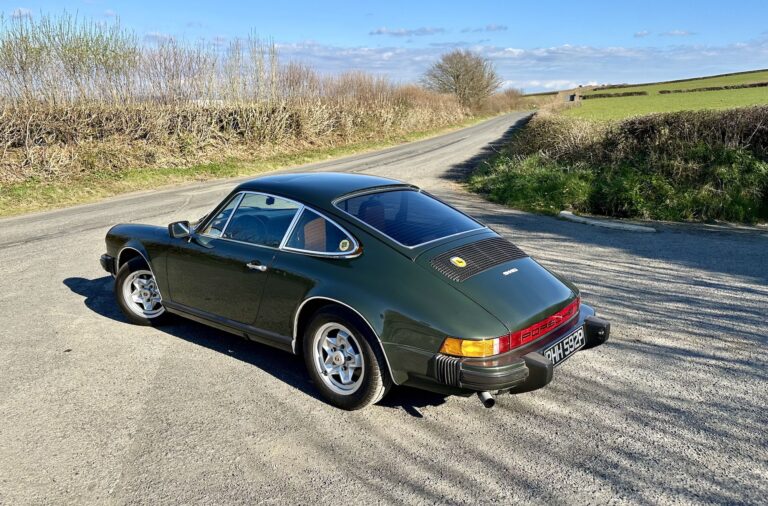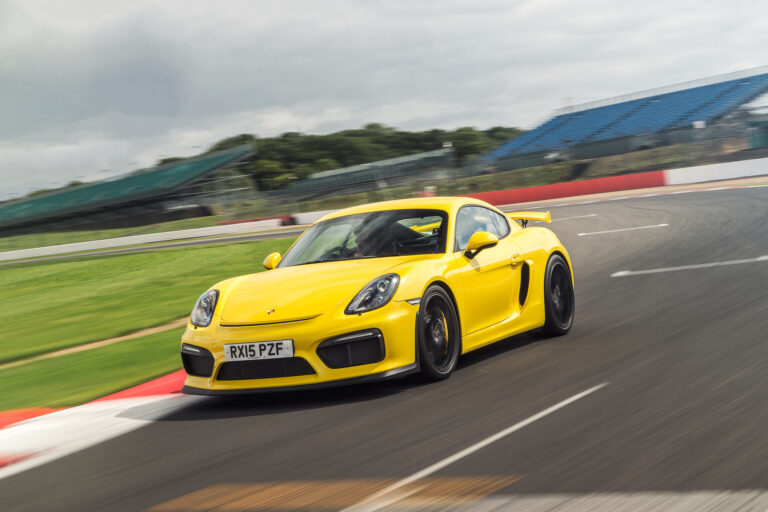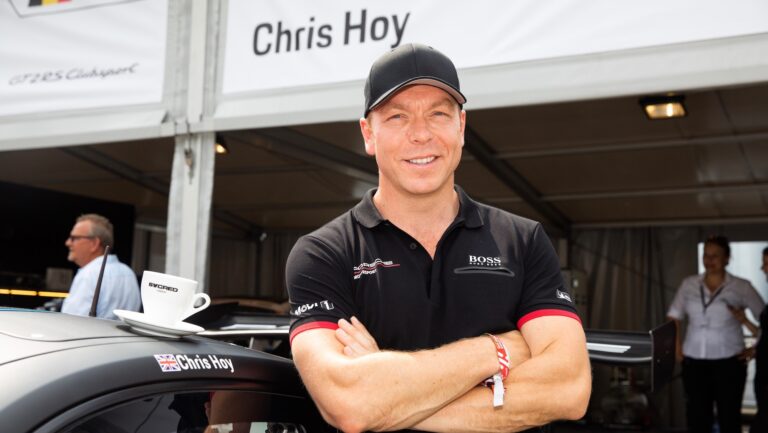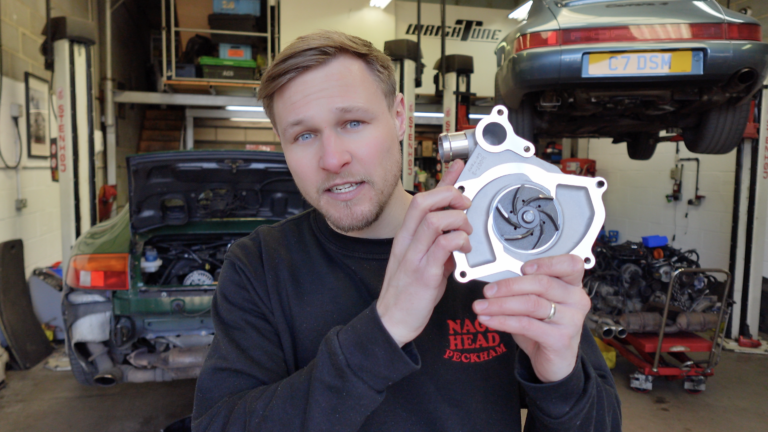 By Lee Sibley
3 years ago
By Lee Sibley
3 years ago
How and why Porsche dominated the car market in 2021
It was good news across the board for values of Porsche sports cars last year, as UK Hagerty Price Guide Editor, John Mayhead, explains…
There are trends that have made a big impact on the global classic and collector market this year. The rise of Japanese cars has been phenomenal, especially those of the Fast & Furious era, which have started to smash records almost every time a good one is offered for sale. ‘Halo’ Ferraris too have had an exceptional year, especially the F40, with the median public auction sale price rising over 50 per cent year-on-year, as Hagerty investigated in detail here. The Jaguar XJ220 has been another winner, suddenly emerging from the shadows that have dogged the model since its launch.
But look behind those headlines and the data shows that only one brand has, across the board, continued to dominate nearly every facet of the hobby: Porsche.
When we analysed traffic to the UK Hagerty Valuation tool, Porsche was the most searched for make with 10.6 per cent of all searches, nearly half as much again as the next nearest brand, Ford.
Categories
The most searched-for model was – surprise, surprise – the Porsche 911, with 6.5 per cent of all searches. In fact, it proved so popular in 2021 that if the 911 were a manufacturer rather than a model, it would sit fourth, between Jaguar and MG.
Then there is the car in the UK Hagerty Price Guide that recorded the biggest increase in value this year: the Porsche 959 Series 1 Komfort. It added £313,600 to its average value and now tops £1 million for the first time.
Our colleagues at the US Hagerty Valuation Team team then listed all annual sales we tracked, and the greatest model generation by value was the Porsche 911 (997) with a combined value of $223m (£169m), well clear of the 1963-’67 Corvette in second place with $205m (£150m).
It’s not just the top models either. Across the Porsche range, the growth is much more widely spread than for some of its key competitors. Of the 151 Porsche model generations tracked by the Hagerty Price Guide, 56 per cent increased in value in 2021. It’s a stark contrast to comparable brands; of the Jaguars Hagerty tracks, 30 per cent increased, and for Aston Martin the rate was 27 per cent.
Look outside of Hagerty’s own data and the story is the same: Classic and Sports Finance reports that nearly a quarter (22.7 per cent) of all policies they have facilitated over the past two years have been for Porsches. UK and European auction results also tally: the top manufacturer in terms of total sales is, you guessed it, Porsche, with £41.95 million.
So, why does Porsche have, and maintain, such a dominant place within the market? One major element is the ubiquitous nature of its media presence. Look at any of the big enthusiast car channels on YouTube and Instagram and Porsche features heavily.
Then there’s the vision of the German company’s executives. Years ago, given the impressive survival rates of Porsche cars, the suits decided that the company would commit to supporting its older models. Many makers show little interest in their back catalogue, but Porsche was one of the first in seeing the value in its historic fleet and, more importantly in financial terms, the owners. Own a 1967 Porsche 911T and in the UK you can download, for free, a copy of a parts book that details every single component, down to individual washers. Click on the part, and it will be at your local dealership in a matter of days.
Porsche has also built a sense of community. It invests in supporting the clubs. At Porsche Experience Centres, you can learn to drive your car around the track, accompanied by some superb instructors: until very recently, some lucky people arrived to find that Richard Attwood, the Porsche factory driver who won the 1970 Le Mans in a 917K, would be their driver for the day.
“Porsche’s investment not just in its current customers but in future customers and enthusiasts has had a significant impact on the current strength of the brand,” said Rob Sass, Editor-In-Chief and Content Director of the PCA. “Efforts like Sports Car Together Day, Rennsport Reunion, and the ever-expanding Porsche Classic program keep the marque top of mind, and also make it more accessible as well. And while Porsche will always be a premium brand, they’re not remotely ashamed of their more entry-level legacy products. Quite the opposite. Porsche Classic wholeheartedly supports cars like the 914, 924/944 and the 986 Boxster. These cars act as a point of first contact, which combined with active clubs, create a constant pipeline of new devotees.”
Sass makes a really important point here: whilst Porsche has always been justifiably proud of its range-topping models, the company has always included entry-level cars in its line ups. From the 912 and 914 through to today’s Boxster and Cayman, these allow aspiring owners to gain the first rung on the ladder. The Hagerty Price Guide currently shows 27 Porsche model generations that can be bought for under £20,000. For Aston Martin, the number is just three.
So, what’s the outlook for the brand in the classic and collector market? Hagerty believes that it will remain strong. Like the automotive reputation of its cars, Porsche will keep doing what it does very well, with a minimum of fuss. It may not be the most expensive, the flashiest or the rarest, but it will remain the benchmark by which so many others are judged. Plus, with both hybrid and EV versions of the Cayman and Boxster shortly planned for release, Porsche’s position as a dominant force in the modern, as well as the collector, sports car market will continue.
Check the value of your Porsche: https://www.hagerty.co.uk/valuation/
Written by John Mayhead, Editor, UK Hagerty Price Guide
